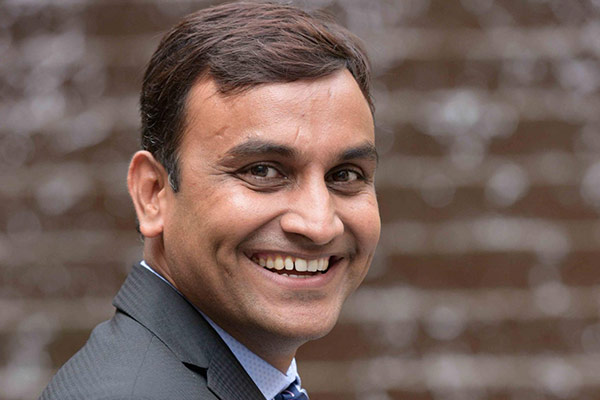In an interaction with CRN, Nilesh Jain, Vice President – South East Asia and India, Trend Micro, shares about the company’s unique market positioning, current security trends environment and focus areas for 2018 and 2019
How was the year 2017 for Trend Micro?
The year 2017 has been fantastic and we have been growing significantly. Our revenues have been doubling every year. There are multiple factors contributing to this growth. The first factor is that the overall security market is growing, due to rising threats and consumer awareness. There are not many vendors who understand the threat scenario from a holistic point of view. Customers are looking for vendors who can provide solutions today, but also can be long-term partners. Trend Micro fits the bill. The second factor is that we have added a lot of new solutions and products; we are a truly large enterprise security company. In network security, we have strengthened our positioning by acquiring tipping point IVS from HPE, which has made us a dominant player in the anti-APT business – customers today are looking for vendors who can give them anti-APT solutions covering all the entry and exit points. We have also been a leader in hybrid cloud security. A lot of customers are now adopting cloud, and we are well positioned to cater to their needs.
Many customers, particularly in the BFSI, government and pharma sectors, are concerned about their compliances, vulnerability – that’s where we have been providing our solutions such as Virtual Patching; we have more than 30 per cent market share in this space. End-point market has also been growing. Earlier there were not many attacks on end-points, but in the last few years, we have seen a lot of sophisticated attacks on end-points, and we have been a leader in providing solutions in this space. We have been able to attract a lot of customers from our competitors as well. Apart from BFSI, government and pharma sectors, IT and ITES is also a major sector.
Recently SBI has been talked about a lot. Besides that, are there any other significant clients?
We have 75 per cent market share in banking customers in India, which includes many renowned names besides SBI and Andhra Bank. These clients are also using our hybrid cloud security solutions for protecting servers and data centers.
There are many reasons behind our leading positioning in the banking sector. Customers are looking for a solution which can protect their most critical infrastructure, and can give a holistic visibility of the threat scenario. The most critical part of the infrastructure is the database; customers want their servers to be protected because all the attacks are targeted at servers. We are in a unique position wherein we can provide all these solutions.
Are there any common challenges that CISOs and CIOs face, or it differs from case to case?
When we interact with CISOs and CIOs, the description or the interpretation of the problem is different, but when we go further into it, we find that the problems are the same everywhere. All the scenarios are different, but when you investigate deeper, you find that in all cases, there is no centralized visibility and companies are not able to protect their vulnerabilities on time. Through these two things, a lot can be taken care of, but for these two things, there’s a process that companies need to identify, people have to be trained etc.
We at Trend Micro have cracked the formula to address these problems. Instead of providing different solutions for different things, there is one solution for every problem. We have solutions, which are once deployed, a lot of problems can be address. We provide tools wherein customers can check is something is going wrong in the first stage itself.
There are debates about prevention, detection and responding. What’s Trend Micro’s standpoint on this?
Detection, prevention and responding go hand-in-hand. The process designed for an organisation should keep these three things in mind. These three things have to be deployed in a single piece. Most of our solutions have these three capabilities built in. Every solution of Trend Micro is designed in such a way which can understand the system and network. These are the reasons that customers see value in us. Customers are also careful about the RoI they get from security solutions, and Trend Micro is well positioned in providing the highest RoI to them. The keyword that integrates all the three things is ‘automation’. We also have a case study of Lupin Pharma in this area.
How much boost has digital migration given to Trend Micro’s business in India?
This can be categorized in two parts – government driven initiatives and technology driven initiatives. Government is trying to automate all the processes, digitize all the records. We are participating in numerous such requirements of governments and have been able to see good success. However, more success is yet to come; I am hoping to see sizeable revenue from government-led digital initiatives in the next two years. In the technology-driven digitization, private sector customers are forced to adopt new technologies such as cloud, big data, robotics etc. Any organization not adopting these technologies is left behind. This has given boost to security needs among organizations, and that’s where we have seen a good momentum; most of our revenue has come from the technology-led changes in private enterprises.
As an organization, we ourselves have to adopt these new technologies, which we did a long time ago. We have been using cloud since 2004-2005, so we were able to envisage the advantages of cloud. We have also been using big data for many years now. We are also working closely with OEMs to provide solutions. Even in Machine Learning (ML), we have incorporated our solutions.
A lot has been talked about Aadhaar data security. Does Trend Micro have solutions to protect this kind of data in the government space?
Even in cases of breaches here, vulnerability is being compromised. When we go to the root cause, there’s either a flaw in the process, vulnerability compromise, or ignorant users. These are the basic things and most the talks about Aadhaar data security involve one of these factors. Our solutions, if deployed and managed properly, can protect the customer to a greater extent.
We are already working in the government space. Many ministries and government establishments are already using our solutions.
How significant has been the role of channel partners in Trend Micro’s growth story?
Channel partners are very important. We have a full-fledge channel team. Organisation like ours can’t grow 100 per cent year-on-year without the support of channel partners. We have been leveraging channel partners not just for reaching out to customers, but also to make sure that most of our deployments are done by channel partners. We completely understand that channel partners are critical for our growth story. Hundred per cent of revenue is from distributors.
We categorize channel partners based on their specializations. We have multiple products, and over time many specialized channel partners have evolved. For instance, channel partners in the cloud space deal with our hybrid cloud security offerings. Similarly there are partners specializing in network security and end-point security. There’s another category of partners – System Integrators (SI) – who specialize in everything such as TCS, Infosys, Wipro. Besides, there are also Tier II partners.
We have over 2500 SMB channel partners. Every quarter we do more than 500 unique transactions with partners. In the enterprise space, we have 40-45 partners in India.
Our expansion plan, in terms of partners, will be based on our product strategy. We are growing rapidly in hybrid cloud security services, network security. We certainly have plans to acquire more partners in the network security space, beyond Tier I cities. We have reached a stage wherein we see hundreds of new customers coming in every year, and we need sufficient partner strength which can cater to this. Apart from Delhi, Mumbai and Bengaluru, we have offices in Chennai, Kolkata, Hyderabad. We are also having plans to have representatives in Chandigarh and Kochi.
Do have any channel program in place at your company?
We do have channel programs, but channel program is an evolving thing. We always had deal registration, incentives for sellers. At the end of the day, channel partners and we walk for customers. Wherever there’s a change in customer trends and requirements, our channel programs also change. For the last two year, we have been heavily focusing on hybrid cloud security, wherein we have been giving incentives to our channel partners to not just ensure they have a good margin, also earn a good services revenue. We have also been giving incentives to channel partners’ sales and technical teams.
In the services part, do you think the role of Managed Security Service Providers (MSSPs) will be crucial?
MSSP partners have different connotations to them. There are partners who manage security and services on behalf of customers, so they might own the assets too. MSSPs are important, but these days most of the customers realize that they can’t completely outsource security. Most of the customers who hold critical infrastructure, who are driven by compliances and regulatory boards, would like to have ownership and control over security. We have a good model of hybrid security services wherein customers hold products with them, while still outsourcing a lot to channel partners. We see the world moving more towards hybrid security services.
There is a shortage of skilled professionals in this space. What efforts are put by Trend Micro to build this gap?
Apart from the regular trainings, we have a certification training program wherein many channel partners enrol. We have realized that solving the problem of today doesn’t solve the problem of tomorrow. Globally we have created the concept called ‘Trend University’. I am working with our global team to set it up in India too. We understand that skill is one of the biggest success factors to customers to protect their security operations.
What sort of value-addition will you give to trade partners vis-à-vis the competition?
The biggest value-addition is the unique products that we have. What sets us apart in India is our people, the talent we have been able to acquire, retain and motivate. We spend a huge time to ensure that our professionals are well certified in the security landscape, and they understand customer requirements.
What is the roadmap for 2018 and ahead?
As long as you keep sensing the change in the customer environment and keep on addressing those requirements, the growth will come. My first priority for the next couple of years is to remain very close to customers from multiple perspectives. For this, we have to recruit the right set of channel partners, train them well and make sure that there’s a matrix among channel partners wherein we can evaluate how well our customers are being served. Channel partners who serve the customers well will get incentivised separately.











